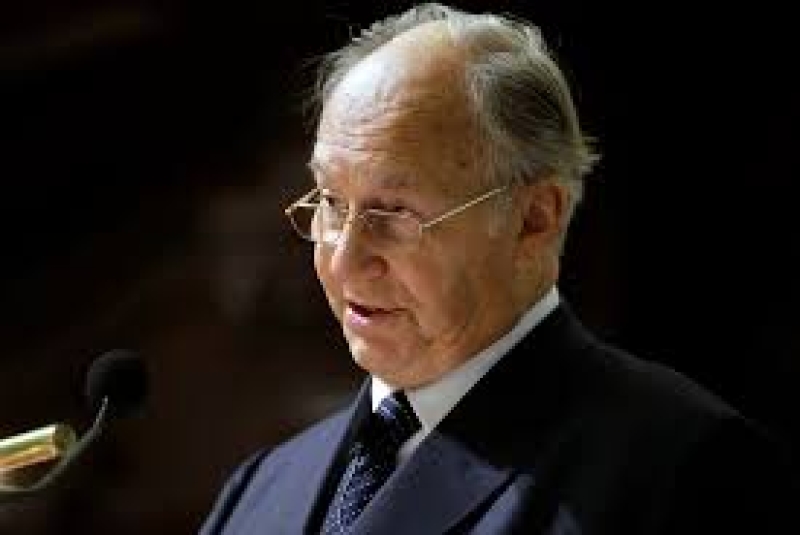- Bangladeshi Expats Cast 4.58 Lakh Postal Votes |
- IMF Forecasts Bangladesh GDP to Rebound to 4.7% in FY26 |
- Arab Allies Urge Restraint as Trump Presses Iran Talks |
- EC asks printing presses not to print election posters |
- Protect your votes, conspiracies still on: Tarique to voters |
Aga Khan, Ismaili Muslim Leader, Dies at 88

The Aga Khan, the spiritual leader of the Ismaili Muslims and head of a major global development foundation, passed away on Tuesday in Lisbon at the age of 88, his foundation announced.
As the founder and president of the Aga Khan Development Network (AKDN), which employs 96,000 people and supports development projects primarily in Asia and Africa, the Aga Khan’s influence extended far beyond the Ismaili community. The foundation confirmed that "His Highness Prince Karim Al-Hussaini, Aga Khan IV, 49th hereditary Imam of the Shia Ismaili Muslims and a direct descendant of the Prophet Muhammad (peace be upon him)," passed away peacefully on February 4, 2025, surrounded by family.
The announcement of his successor, who will be the fifth to hold the position since the 19th century, will follow in due course.
The Aga Khan’s leadership spanned decades and his philanthropic work touched millions, especially in regions such as central and southern Asia, Africa, and the Middle East, where the Ismaili community is predominantly located. The community numbers between 12 and 15 million globally, according to the foundation.
United Nations Secretary-General António Guterres praised the Aga Khan, calling him “a symbol of peace, tolerance, and compassion in our troubled world.” Nobel Peace laureate Malala Yousafzai also expressed her admiration, highlighting the Aga Khan’s lasting legacy through his contributions to education, health, and global development.
Born in Geneva and raised in Kenya, the Aga Khan succeeded his grandfather as the spiritual leader of the Ismailis in 1957, following a notable family history. His father was passed over in the line of succession due to personal challenges. A billionaire businessman, the Aga Khan was known for his interests in yachts, jets, and horse racing, continuing the family’s tradition of breeding thoroughbreds. However, much of his wealth was dedicated to charitable causes.
The Aga Khan was granted honorary Canadian citizenship in recognition of his significant contributions to global development and promoting tolerance. He also held British and Portuguese citizenship, with his leadership based in Lisbon, where there is a large Ismaili community.
Despite his prominent religious role, the Aga Khan was often reluctant to engage in discussions on Middle East conflicts or sectarian tensions, notably the Sunni-Shiite divide. In a 2017 interview, he emphasized that Islam is “a religion of peace,” stating that conflicts presented in a theological context were often political in nature.
His death marks the end of an era for the Ismaili community and global development efforts, leaving behind a profound legacy of service and compassion.

